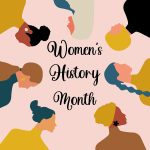This month being Black History Month, I’ve been perusing some great African American nonfiction. Before I list some books to check out, do you know how Black History Month started? Check it out.
From history.com:
The story of Black History Month begins in 1915, half a century after the Thirteenth Amendment abolished slavery in the United States. That September, the Harvard-trained historian Carter G. Woodson and the prominent minister Jesse E. Moorland founded the Association for the Study of Negro Life and History (ASNLH), an organization dedicated to researching and promoting achievements by black Americans and other peoples of African descent. Known today as the Association for the Study of African American Life and History (ASALH), the group sponsored a national Negro History week in 1926, choosing the second week of February to coincide with the birthdays of Abraham Lincoln and Frederick Douglass. The event inspired schools and communities nationwide to organize local celebrations, establish history clubs and host performances and lectures.
There’s more detail on history.com here. There’s a lot of popular African American nonfiction out there. Here’s just a few titles definitely worth a look:
Maya Angelou’s first autobiography, I Know Why the Caged Bird Sings. In many circles this book is considered a classic.
The Autobiography of Malcolm X by Malcolm X and Alex Haley. As one Goodreads reviewer writes, “This book, more than any other I’ve read, opened my eyes to see how the innate racism in our country works and affects the people it is most sharply targeted at: African Americans.”
Freedom’s Daughters: The Unsung Heroines of the Civil Rights Movement from 1830 to 1970 by Lynne Olson, who “…skillfully tells the long-overlooked story of the extraordinary women who were among the most fearless, resourceful, and tenacious leaders of the civil rights movement.”
Harlem is Nowhere: A Journey to the Mecca of Black America by Sharifa Rhodes-Pitts. As one reviewer writes, it’s “not just another book about Harlem’s colorful figures, its glory days, or a meditation on the literary boldface names of the Harlem Renaissance and beyond. Rhodes-Pitts also interviews contemporary Harlem residents — the ordinary people she encounters on the street and at community meetings.”
In honor of Black History Month, what nonfiction books would you recommend?


